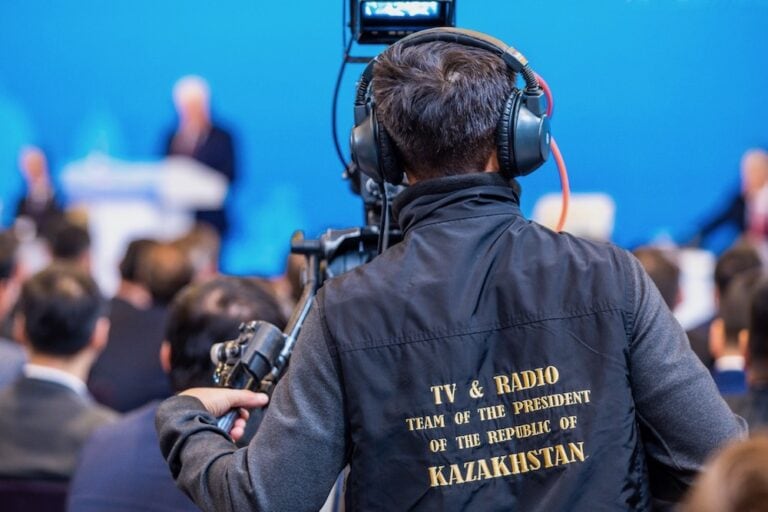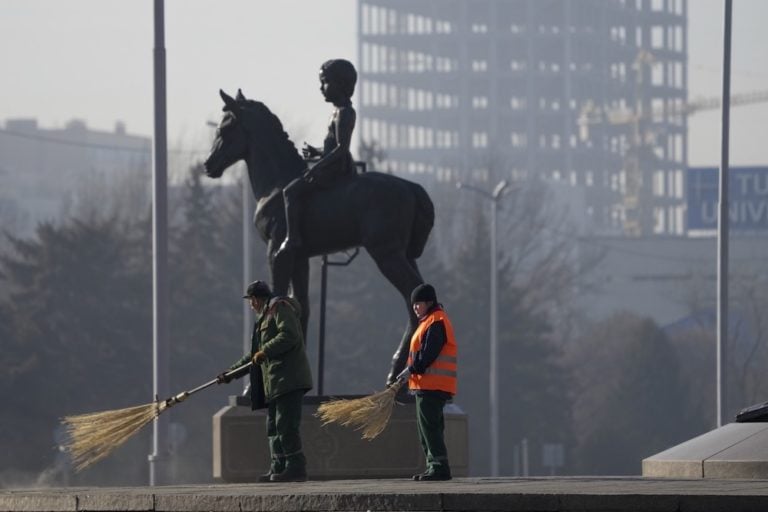Adil Soz and seven other media organisations say that parts of the proposed "Law on Television and Radio Broadcasting" do not conform with international access to information standards.
(Adil Soz/IFEX) – Adil Soz, the International Foundation of Protection of Freedom of Speech, and seven other Kazakh media organizations have made an appeal to members of Parliament regarding the draft “Law on Television and Radio Broadcasting”.
The seven media organizations are: National Association of Broadcasters of Kazakhstan; Internews-Kazakhstan; Regional Center for Journalism “Tilshi”; Public Foundation “Adil Arka”; Public Association “TV Batys Info”; Public Foundation “North Kazakhstan Regional Legislative Media Center”; International Association of Cable TV Providers “Asia”.
The media organizations have expressed concern over some of the draft law provisions that do not fully conform with international access to information standards. These draft law provisions “maintain the state monopoly on the broadcasting media market, may violate the public’s right to receive and distribute information freely, and undermine the principles of fair competition in the broadcast field,” say the Kazakh media NGOs.
Civil society representatives and NGOs had participated in the process of preparing amendments to the bill. However, the main contributions of NGOs and media groups were ultimately overlooked.
Adil Soz and the seven other Kazakh media organizations who signed the appeal urge members of Parliament to consider the following amendments to the law:
– The Broadcast Regulatory Authority is independent from the government and solely accountable to Parliament
– The authority may monitor TV and radio channels, checking their compliance with legislative regulations and technical rules only
– The national broadcast provider must ensure that the TV and radio channels which received licenses and broadcast earlier continue to do so without any complications
– The national and privately owned broadcast providers, state and private TV and radio channels must have equal rights
– The registration process for local TV and radio channels as well as for foreign channels should be less complicated and should avoid any requirements regarding the content of TV and radio programs
– Content of TV and radio programs, including languages of broadcast and volumes of domestic production, should be reconsidered based on the needs of the public, minorities, and the principle of fair competition and the right of citizens to receive and distribute information freely
This is the first time a law like this has been developed in the 20 years since the country’s independence. The law’s main purpose, as stated in Article 4 of the bill, is to “ensure that citizens exercise the right to receive and distribute information freely (. . .) the right to freedom of expression, and create conditions for their cultural, educational, spiritual and other needs”.


